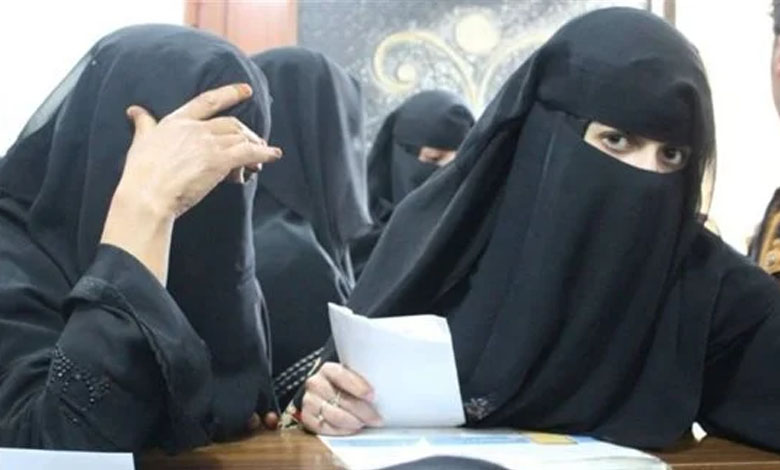The Houthis are following in the footsteps of Taliban, Iran tighten restrictions on women

The Houthis have imposed additional social restrictions on women in actions similar to those imposed by Iran and the reigning militant Taliban 20 years after its regime was toppled, while exacerbating a dire social situation.
Although Yemeni society is generally conservative, it has traditionally allowed room for individual freedoms. But all that changed with the rise of the Houthis. The rebels impose strict social and religious rules in the areas they control.
Abir al-Maqtari’s dream to study outside Yemen has faded due to new restrictions imposed by Houthi rebels on women’s movement in areas under their control. “I got a scholarship in Cairo but the Houthis did not let me leave the airport in Sanaa,” which they have controlled since 2014, she said, accusing her of being denied her “obvious” rights.
Abir, whose town of Taiz in southwestern Yemen is under rebel siege, has also been denied permission to fly to the government-controlled airport in Aden, citing a ban on women traveling from one city to another or traveling without a Mahram.
Preventing women from traveling long distances without a mahram is similar to the restrictions imposed by the Taliban in Afghanistan, something that did not exist in Yemen before the eight-year war.
The Houthis belong to the Zaidi minority. The Ansar Allah movement that represents them in Saada emerged in the 1990s against the backdrop of the marginalization of the Houthis.
Although Yemeni society has always been conservative, “this is the first time that an official authority has decided to limit women’s freedom of movement,” said Razia Al-Mutawakil, a Yemeni human rights activist, founder and head of a Yemeni human rights organization.
Moving around or traveling with a mahram creates a “very dangerous” precedent that punishes working women in particular with a general tendency to limit their presence in public space, al-Mutawakil said.
Several swimming pools and gyms for women were closed in Sanaa in August, including a beauty salon project and a sports club for Aisha Ahmed.
After several petitions and appeals on social media by Aisha, she was allowed to reopen the beauty salon but not the gym, which was closed indefinitely.
The decision, she said, resulted in “eight out of 15 female staff members at the sports club losing their jobs.” In Hodeida, in the west of the country, which is also under Houthi control, authorities closed a café for women.
The 38-year-old coffee shop owner, who spoke on condition of anonymity, said the workers asked her to “agree to all the conditions to continue.” “We told them we agreed to wear whatever they wanted, even if it was the Afghan burqa,” she said.
Balqis al-Lahabi, a gender adviser at the Sana’a Center for Strategic Studies, said the measures serve both religious and political goals and are designed to satisfy the more hardline wing of the Houthis.
Al-Lahabi says the Houthis are “inspired by the Iranian model and the Taliban regime’s model to suppress any dissenting voice and bring society to its knees.”
“In the Houthi stronghold of Saada and some remote villages, women can no longer move on their own after 6 p.m., even in medical emergencies, and they no longer have easy access to contraceptives as there are restrictions.”
A women’s police unit known as the Zainabiyyat was tasked with organizing and enforcing order in all places reserved for women.
But in major cities, residents are resisting what Razia Al-Mutawakil describes as “attempts to Talibanize society,” especially in the capital Sanaa, which has long been known for its diverse population. The new generation of Yemenis want to defend their rights.
Residents in Sanaa have condemned the ban on mixed graduation parties from universities and restaurants, and the ban on music during some celebrations, forcing the authorities to back down at times. But al-Mutawakil says it is a “long-term battle”.












